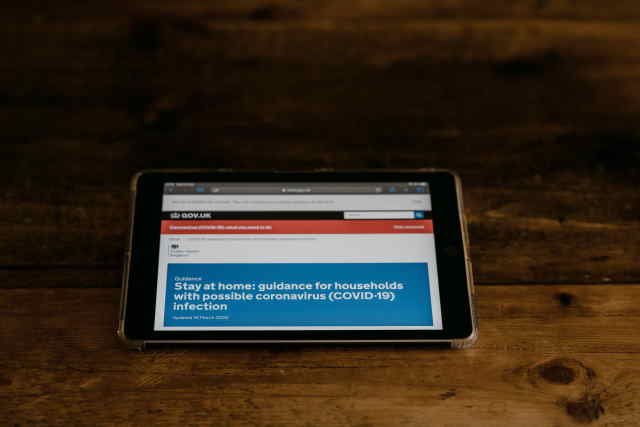Rodney Eivers considers reactions to COVID-19 restrictions
As the hours and minutes drew near to 6 p.m. on Friday 8th January 2021, for Brisbane’s short sharp lockdown in response to the coronavirus I found myself strangely at odds with some of my family and associates. Given the advertised restrictions, some intended to carry on with a family meal with attendance to the limit imposed by the Government. In discussions with fellow officers of my local church congregation and pondering whether to go ahead with a church service normally attended by people in their 80s and 90s, the question put was not whether it was healthy or not but whether the Government would allow it!
Just as we have the contrast between the optimists and pessimists (some would say “realists”) in our society, I am finding a binary in our reactions to the virus.
One group wants clear limitations. What you are and are not allowed to do seems to be the major hinging point.
From my perspective, with some surprise, I found myself wondering “Hey, what is this all about?”. I am not too concerned about what the Government thinks. I am more concerned about the impact of the virus on me. This being the case, it is up to me to decide how I respond in countering its potentially deadly effects.
Of course, in some respects this puts me at the level of the anti-vaxxers. They are not going to be told what is good for them. But it can work in the other direction, too. That is, rather than wait for the authorities to make the decisions as to what is safest for me as an individual, I may have the option of doing my own research and using my own experience in deciding what more promising action I might take.
For example, the government makes a ruling that it is ‘all right’ to attend a crowded football or cricket match. Do I then say, “Good, it is now my duty to attend the football match even though there remains some potential for becoming infected”? Some Governments, indeed, have actually urged, or paid, for people to go to a restaurant or tourist resort during the pandemic.
It will help the economy and it is the loving thing to do because it will keep people in jobs, they say.
Or do I say, “It may be a loving thing to put myself at risk but I can’t be helpful to anybody if I am dead or permanently disabled from the ravages of the disease”?
It all comes down to priorities, doesn’t it? What needs come first?
I am a keen follower of the analysis of needs provided by psychologist Abraham Maslow, and I use this in day-to-day decision-making. Maslow sees the base need to be survival.
When survival is assured we go for security. Beyond survival and security we give attention to the more esoteric longer-term aims such as socialising, success and self-actualisation.
Mind you, we don’t always follow this pattern. Clearly, attending a football match or dancing at an intimate night club may meet needs having priority over survival. Millions die in wartime through putting perceived security and socialising ahead of survival.
So in coping with Covid-19, do we just do what we are told, more or less, or do we use our own informed judgement and experience to favour our individual survival and thus remain available to play our part in making this world a better place?
Disclaimer: views represented in SOFiA blog posts are entirely the view of the respective authors and in no way represent an official SOFiA position. They are intended to stimulate thought, rather than present a final word on any topic.
Photo by Annie Spratt on Unsplash



One of my concerns on the issue relates to ‘doing your own research’. In principle I agree this is a good idea. A friend of mine, likeable, honest and intelligent, is an anti-vaxxer. He’s done his own extensive research and written books on the topic. Unfortunately it’s led him down a conspiratorial rabbit hole where all ‘experts’ and the mainstream media are now viewed not just as unreliable but as actively misinforming us – shades of the Trump supporters in the US. On complex issues like virology and climate I think we need a healthy (though not blind) respect for professionals and for science. There’s a limit to the ability of amateur ‘research’ to get to grips with these complex issues.
Governments bow to pressure. When it’s the health-lobby, they’ll say, “isolate”. But when it’s the business-lobby’s turn, the government de-emphasises isolation.
It is not just governmental authority that lies. ‘Authority’, as such, lies. Our parents did it to us. We do it to our children. We tell them, “Always look on the bright side”, and, “Don’t be negative”.
But positive-thinking without concomitant negative-thinking can be a death-trap. “Enjoy your boating” (positive). “Wear your life-jacket” (negative).